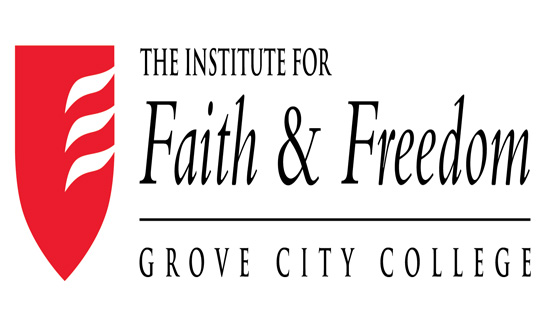True Diversity, True Freedom – Honoring Conscience

By Benjamin V. Porter
Editor’s note: A version of this article first appeared at TheParagon.net.
I’m a Protestant and my friend, Joe, is Roman Catholic. Occasionally, when I discover someone is Catholic, I joke, “Hey, our spiritual ancestors burned each other at the stake.” Generally, I say this once I know the person somewhat and know the person can handle humor. Joe was one such person, and we hit it off quickly. Joe, like me, is a practitioner of diversity and liberty, including religious liberty.
There was another duo a century ago that walked a similar path: J. R. R. Tolkien and C. S. Lewis. Lewis was Protestant and Tolkien was Catholic, and the man who did heavy lifting converting Lewis.
Tolkien and Lewis saw much through the same lens. Both were brilliant scholars familiar with history, literature, and languages. Both were prolific writers and their books shaped generations to come. They wrote fantasy literature, letting spiritual themes and allusions speak for themselves, although they were certainly capable of apologetics. Ultimately, they sought to build a kind of bridge from heaven to earth, and the world could not help but be enraptured by their work. These men had so much in common, but they also had one glaring difference: While Tolkien converted Lewis, he did not convert him to Catholicism. Lewis died a Protestant. Did this mean the end of their friendship? Not at all.
Joe was able to take my initial joke and return a jab, but without malice or insult. In fact, Joe’s defense to my critiques of Catholicism was one of patience and kindness. He completely reframed my initial presumptions of certain Catholic dogmas, genuinely trying to explain the why behind the how. For example, he would tell me that he prayed to Saint Stephen for me, even when I insisted he didn’t need to. While I disagree with his belief that saints can serve as intercessors, I could not help but be slightly disarmed that he wanted to pray for me.
Civil debate is a lost art. It still occurs at the margins, but the highway of differing opinion is crowded by social media and woke journalism, which are not modes exactly designed for helpful and even pleasurable disagreement. In this day and age, how could two people on opposite ends of a spectrum possibly enjoy disagreeing with each other, let alone on hot topics of politics and religion? There are two major principles which guide the conversations between Joe and I: commitment to truth and commitment to the other.
Commitment to the truth is the telos of debate. When probing deep truths there are laws to conversation which allow it to progress. Among them, the identity of the speaker does not determine whether the speaker’s argument is valid. Race, sex, religion, or any other such category has no effect on whether the person’s argument holds to reason.
It’s also important when advocating our positions to seek areas of agreement as well as difference. The reason Joe and I hit it off was because we found we had read many of the same thinkers, and agreed on many subjects, particularly areas where most people are uncomfortable going. Joe was also not afraid to pursue truth. He had intellectual courage, and he welcomed disagreement in the hopes of learning.
But what completely took me by surprise was Joe’s charity. This is what I call commitment to the other, and it allows the conversation to be fair and amiable. I tend to become wholly concentrated on the validity of someone’s reasoning and then focus on flaws in their argument. Joe could think just as critically as me, but his position felt much less like an attack and more like an invitation. He doesn’t simply try to win intellectual battles; he tries to win people’s hearts. He wants to convert, not destroy.
In short, we became friends and learned how to enjoy disagreement. Like Tolkien and Lewis, we can talk for hours and enrich each other’s worldviews.
At the heart of this is a love and respect for religious liberty. Religious liberty is the idea that people believe different things, and they ought not to be punished by law for those differences. Importantly, that principle is not infinite. If one’s religion calls for the sacrifice of babies to Moloch, this would not be permitted because it would violate the right to life. But beyond transgressing the natural rights of life, liberty, and property, religious liberty is an essential.
Religious liberty is of utmost importance because it is a subset of freedom of conscience. James Madison wrote that a man’s conscience is “his most valuable possession.” If a man does not have the right to his own conscience, what liberty is left? To try and detain someone’s conscience through the use of governmental force is the peak of tyranny.
I am thankful for the lessons I have learned from my friend Joe on how to disagree in a constructive way that promotes camaraderie. I hope our society, especially religious believers, can look at the way Tolkien and Lewis remained fast friends. It takes moral and intellectual courage and love for others to pull this off in a winsome way. Let us strive for these ideals together and revive them in American culture.





